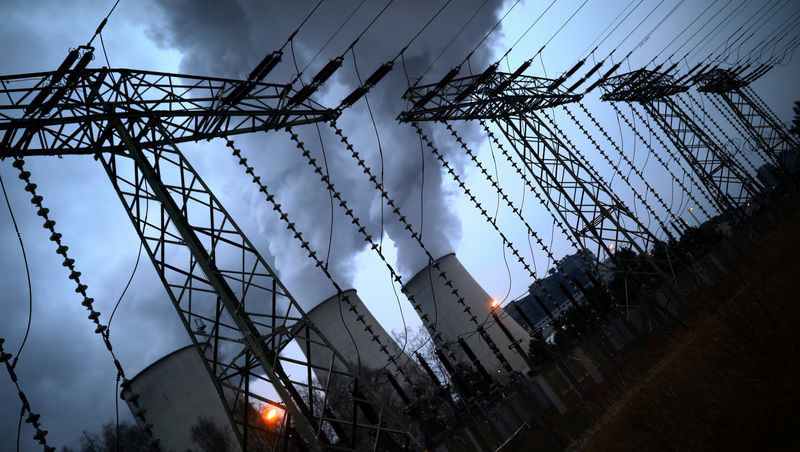BERLIN (Reuters) - No extra money will be allocated by Germany to help with the phasing out of coal-fired power, Finance Minister Olaf Scholz said on Thursday, complicating efforts by Europe's largest economy to achieve ambitious climate protection goals.
A government-appointed commission proposed the shutdown of all Germany's coal power stations by 2038 at the latest, recommending that at least 40 billion euros (35 billion pounds) in aid be provided for affected regions, with further payments to cushion the potential burden of rising energy prices for companies and consumers.
Scholz told Handelsblatt business daily that the proposed 2 billion euros of annual aid until 2040 was a "plausible assumption" but other ministries must manage the coal shift with money from existing budgets.
"We have earmarked big funds for investments; for example, in the budgets of the transport ministry, economy ministry, science ministry and construction ministry," Scholz said.
Scholz, a member of the centre-left Social Democrats, junior partner in Chancellor Angela Merkel's coalition government, rejected the coal commission's proposal to support the construction of new gas power plants with state money.
He said that state money would be better used in research to fund solutions such as using hydrogen as an energy source.
Scholz and Merkel will meet the state premiers of affected regions later on Thursday to discuss how to finance the coal commission's proposed measures.
Reiner Haseloff, prime minister in the eastern state of Saxony-Anhalt, called on the federal government to implement the coal commission's proposals without changes.
"The proposals must be implemented as recommended. Changing them would jeopardize the hard-won compromise as a whole," Haseloff told Reuters.
"The 40 billion euros are urgently needed to cushion the earlier exit from brown coal, as demanded by the federal government."
